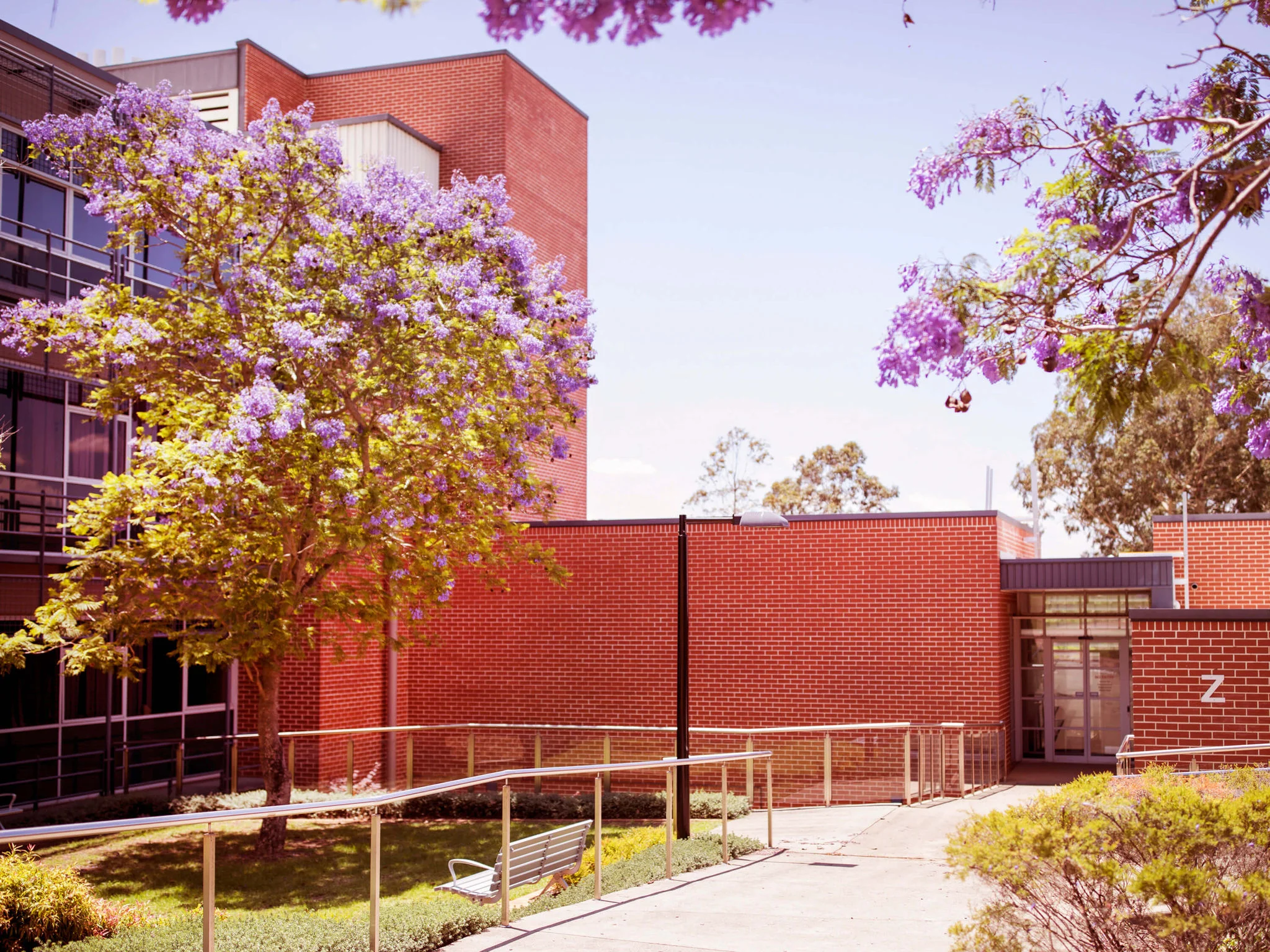Interested in Social Sciences, Policing or Humanitarian Development studies? Successful completion of this Diploma provides a pathway to the second year of multiple Bachelor degrees at Western, without losing any time.
Diploma in Social Sciences
Modular learning
Our modular learning will help you reach your potential, no matter your starting point or ATAR. You’ll study one course-specific subject a time without slowing down.
Introduction
Through the Diploma in Social Sciences, students will investigate various social, cultural, legal, political, environmental, and economic challenges facing contemporary society and gain critical insight into key debates and perspectives that shape our understanding and professional practice across multiple fields.
This Diploma offers various avenues by which students can personalise learning, and build their critical capacities to impact wider social change positively and ethically.
The Diploma in Social Sciences is an engaging and flexible interdisciplinary program, providing students with essential knowledge and analytical skills.
What pathways to further study does this Diploma provide?
Upon successful completion of this Diploma, you can transition to the second year of one of the following Bachelor degrees:
- Bachelor of Social Science
- Bachelor of Policing
- Bachelor of Tourism and Event Management
- Bachelor of Humanitarian and Development Studies
- Bachelor of Criminal and Community Justice
What are the entry requirements for this course?
To be admitted to this course, you don’t need an ATAR. This program is open to Australian Citizens and Permanent Residents who are aged 17 years or over.
Register your interest now.
How it works
Our Modular Learning Model offers an immersive study experience with workshop-style classes focused on one course-specific subject at a time, in 4-week blocks. Classes are held on campus - the average timetable includes 3 hours of classes, 3 days a week, meaning you can fit study around your other commitments.
Additional preparatory subjects run across 17 weeks, predominantly online, with one in-person class every 4 weeks. These subjects help you develop confidence in your studies, and transition into further study or the workforce.
You will complete 10 subjects in total for this Diploma. This requires a total of 110 credit points to be completed over the course of one year of full-time study. The course design of the Diploma represents an annual full-time study load that is slightly higher than the standard study load as calculated by the University, which is 80 credit points or 8 subjects, equating to an equivalent full-time study load (EFTSL) of 1. With 110 credit points (achieved through study of 10 subjects) taken over the course of one year, the Diploma represents 1.375 EFTSL with each course-specific subject representing 0.125 EFTSL and each preparatory subject representing 0.1875 EFTSL.
What you can expect to study
This subject introduces students to university culture and life, and explores a range of skills, attributes and behaviours that will gear students for success in their first year of tertiary study. A range of topics will be covered to facilitate increased confidence in students as they embark upon their university journey, as well as enhance students’ capacities to engaging critically and actively in their chosen field of study. This subject will equip students with a range of academic study skills, research techniques and multi-literacies, and support students to develop their own individualised learning model, personal learning objectives and academic capacities. Academic integrity is further positioned as a critical component of university life and this subject will prepare students to engage effectively in their future professional fields and as active citizens.
This subject will support students across a range of Diplomas in Humanities, Arts and Social Sciences to gain foundational knowledge and capacities relevant to their future studies. The subject will enable students to begin actively engaging with the foundation theories and contemporary issues and controversies from a selected discipline area for future professional application. Students will learn about the discipline and professional pathways that are specific to their diploma area, and be introduced to how these might intersect with other disciplines in a changing tertiary education and societal context. Students will also enhance and further demonstrate foundational university research and communication skills.
This subject introduces students to the development of criminology as a framework for analysis and offers a critical introductory insight into various applied institutional and legislative contexts through which criminal justice occurs. Students will consider the ways in which deviant and/or criminal behaviour is defined and how the legislative and policy responses to crime operate at the level of Police, Courts and Corrections as well as the communities in which they operate. By the end of this subject, students will consider a crime or deviance issue and reflect on current practice. Students will gain skills in assessing criminal justice issues holistically through a critical lens.
This subject explores various relevant theories, narratives and concepts that underpin social scientific scholarship. Students will gain critical insight into ideas such as identity, culture, structures of inequality and difference (e.g. such as gender, race, class, sexuality), and their intersections. With a focus on contemporary social life, the subject provides opportunity for students to consider current social issues and various macro and micro forces impacting social change on a social and spatial level. By exploring a range of key theories and concepts in the social sciences, students will gain knowledge and skills in how to analyse our social world – the world in which they will be working in the future as professionals – and thereby be in a position to more fully comprehend the world around them, its issues, problems, inequalities and injustices that they will be working with. The subject will prepare students with a range of skills relevant to scholarship in the social sciences, such as critical reading, sociological theorisation and analysis, as well as statistical and spatial literacy.
This subject introduces students to the rich diversity: past, present and future of Aboriginal and Torres Strait Islanders in Australia with emphasis placed on the importance of identity, diversity, representation and resilience. You will engage directly with Indigenous sources and learn to critically analyse content from Indigenous standpoints. Presenting as a challenging and thought-provoking experience of Aboriginal and Torres Strait Islander peoples, places and philosophies, this subject provides a solid theoretical foundation of Indigenous perspectives essential for the knowledge and professional practices in your chosen field.
In this subject, students engage with the concepts and philosophy of human rights and explore how these ideas influence the Australian experience within legal, governmental and social service institutions. Students will be challenged to consider if vulnerable groups have their human rights promoted or undermined by current practice and identify a human rights issue to address through a community action plan. Students will gain subject relevant skills linking theory to practice in the process of critical reflection and exercising statistical literacy.
This subject is designed to complement the first six months of study in a College Diploma program by developing the skills required to be successful at University and beyond. The subject is delivered online with students accessing learning modules and connecting with their learner community in their own time and at their own pace to allow maximum flexibility. At the beginning of the subject students use diagnostic tools to identify their specific strengths and areas for improvement, and develop an individualised learning journey through the content. This learning journey will help to address individual study skill needs, while also developing employability skills, facilitating connection with peers and with the University community, as well as the student’s future career.
This subject is designed to assist students to take the next step in their academic development by helping them build higher level reflective skills that will allow them to critically consider their own learning and professional journey and make the adjustments required to achieve their goals. Students will begin to take ownership of their learning by developing proactive strategies that will allow them to study on their own terms. Students will begin engaging with their intended profession and reflect on the skills, attributes and qualifications that will be required to reach their goals. Students will also develop a transition plan to help them navigate the next steps in their academic journey so that they can identify the challenges they might encounter as they move forward, and develop the skills to overcome them.
You can see the course credit points for each subject outlined in our handbook.
Career Opportunities
This program can lead to diverse career paths, including entry-level roles in a range of industries.
Successful completion of this Diploma provides entry to the second year of the following Bachelor degrees:
- Bachelor of Social Science
- Bachelor of Policing
- Bachelor of Tourism and Event Management
- Bachelor of Humanitarian and Development Studies
- Bachelor of Criminal and Community Justice
You can explore the career opportunities available on successful completion of the Bachelor using the above links.
Looking for jobs that are in demand?
Check out these helpful tools that you can use to find out more:
Entry requirements for domestic students
Please consult the handbook for more information regarding entry requirements for this course.
You can read more about special requirements here.
Entry requirements for international students
**Please note, if this course lists a part-time option, this is not available to International Students on a Student Visa.
Please consult the handbook for more information regarding entry requirements for this course.
You can read more about international academic entry requirements here.
Indicative annual fee
The indicative annual fee is based on full-time study over one year requiring the completion of 10 subjects (110 credit points). This study load is slightly higher than the standard study load as calculated by the University, which is 80 credit points or 8 subjects, equating to an equivalent full-time study load (EFTSL) of 1. With 110 credit points (achieved through study of 10 subjects) taken over the course of one year, the Diploma represents 1.375 EFTSL with each course-specific subject representing 0.125 EFTSL and each preparatory subject representing 0.1875 EFTSL. The indicative annual fee has been calculated on the basis of 1.375 EFTSL and is partially subsidised by the Commonwealth – this is known as a Commonwealth Supported Place (CSP). The above fee is what the student owes, known as the Student Contribution.
The Undergraduate preparation program is a FEE-FREE Uni ready (FFUR) program. The Australian Government pays your program fees directly to the University. You will not be charged tuition fees for your FEE-FREE Uni Ready program.
Please note that students studying a FFUR program will be charged the Student Services and Amenities Fee.
As a multi-campus institution, Western Sydney University and its entities reserves the right to alter the location of its programs between campuses and other locations as necessary.
Apply as a Domestic Student
If you are a domestic student, you can apply through our Western Application system which is free of charge.
Domestic students are:
- Australian Citizens
- New Zealand Citizens
- Australian permanent residents
- Australian permanent humanitarian visa holders
Scholarships
Western Sydney University recognises and rewards students who demonstrate community engagement, outstanding academic ability and superior leadership skills. Donor-funded scholarships are also available, providing support for students based on both academic achievements and equity considerations. There are also scholarships available for specific degrees.
FAQs
12 months (full time).
There are no exams in our Diplomas. Instead, our programs employ a variety of assessment types which may include portfolios, applied project work, fieldwork, and practical tasks. Assessments are authentic, maintain high standards and aim to be reflective of real-world tasks. In addition, teachers work closely with students in small, interactive workshop-style classes, and provide students with individual support. This approach ensures a robust evaluation of students’ skills and knowledge. Non-exam assessments develop essential skills, such as critical thinking and time management, preparing students for traditional exams in later years of their programs.
All of our Diplomas commence with the same subject, providing students with an introduction to University life and allowing them to further explore their chosen professional fields. Should you discover a different diploma better suits your personal goals, you can transfer at this stage with no time lost. Transfers to other diplomas are available at any time throughout the duration of your course, and you will receive credit for any common subjects you have already completed.
Diplomas are recognised in the workforce, and can be used to help you stand out from other job candidates. You can take a look at the potential career opportunities in the careers tab.
In this Diploma, there are two electives which students generally complete as the last two subjects in their course. With a wide range of elective options, you can explore a number of topics and align your studies with your specific interests and career goals.
You can view elective options for this course here.
*Please note, students wishing to pathway to a Bachelor of Policing must take ‘BEHV2015 – Mental Health in the Community’ as one of their electives in order to complete their Bachelor degree in minimum time.
Want to know more?
We're here to provide clarity.
If you're uncertain about your study journey, enquire about our program today and gain the confidence to move forward.
Australian students
1300 668 370

What's the difference between a Bachelor degree and a Diploma?
Ever wondered about the difference?
A Diploma offers specialised learning, focused on gaining job-ready skills or preparing you for further study in a particular field. It is:
- Generally more accessible than a Bachelor with flexible entry requirements.
- Faster to complete - on average 12 months of full time study.
- Ideal for anyone who wants to upskill, earn credit towards a Bachelor degree, or start a career.
With a Western Diploma, you study for 12 months through our Modular Learning model at The College.
Upon completion, you graduate job-ready or can transition into the second year of a Bachelor at Western - gaining two qualifications in the time of one. This makes it the ideal choice for those who:
- are looking to do their first year of uni differently, and/or
- need more time to uncover their passion - most of our Diplomas provide pathways (and 12 months credit) into more than one Bachelor course, and/or
- are aspiring for a career in a high-growth industry that doesn't require a Bachelor.
The fee estimates provided are indicative only and subject to change. These estimates are based on the current fee structures for a normal full time study load. However, the final fees may vary depending on several factors, including the specific subjects chosen, the duration and timing of study, and annual fee adjustments (subject to Commonwealth student contribution band rates). Please note that these estimates do not include the Student Services and Amenities Fee. We encourage all prospective and current students to consult with our Student Services Hub for the most current fee information.
As a multi-campus institution, Western Sydney University and its entities reserves the right to alter the location of its programs between campuses and other locations as necessary.






